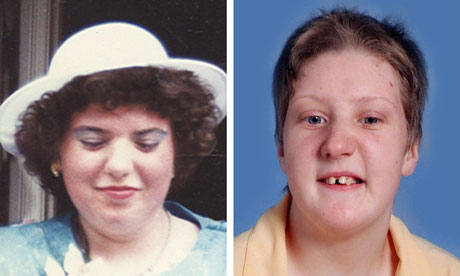
Thousands of vulnerable victims of persistent antisocial behaviour, including many who are disabled, are still “slipping through the net”, the chief inspector of constabulary has warned.
Five years after Fiona Pilkington killed herself and her disabled daughter after they were repeatedly targeted by local youths, a review by Sir Denis O’Connor says that only five of the 43 police forces in England and Wales consistently question callers to establish if they have been targeted before, and no force checks on how vulnerable they are.
“This means some victims are effectively slipping through the net, and not getting the extra support they may need. Improvements in this area must be the next important step in tackling anti-behaviour effectively,” says the report by Her Majesty’s Inspectorate of Constabulary published on Thursday.
One example cited of vulnerable and repeat victims not being identified describes how a caller who rang the police about a neighbour’s 10-year-old son who was being continually abusive to his wife and their 10-year-old disabled daughter, including making sexually explicit remarks that “left her in pieces”.
The report points out that the call handler failed to mention any details in the incident record, or give any indication that action had been taken or child protection authorities alerted.
The report, A Step in the Right Direction, was based on listening to more than 4,400 calls from victims of antisocial behaviour to the police, and the largest survey of victims yet with 9,300 responding.
The study says that 39% of those who complained to the police about antisocial behaviour felt they were being personally targeted as individuals or as families and had started avoiding certain areas or not going out at night as a result.
Just over 21% of victims were disabled people, and 12% felt that their race, religion or disability lay behind the incident.
“Antisocial behaviour remains a blight on the lives of millions,” says the report. “Around 3.2 million incidents of antisocial behaviour were recorded in England and Wales in 2011/2012, and this is probably only a fraction of the true extent of the problem.”
The study found that the police have made real progress on antisocial behaviour since 2010 with many chief constables making it clear that tackling the issue is a priority for everyone in policing.
This contrasts with the previous report, Stop the Rot, in 2010 when the chief inspector of constabulary found that officers did not regard responding to antisocial behaviour as “real police work” and forces widely ignored its massive scale.
The latest survey results confirm that there is increasing confidence amongst the public that the police will take action, up from 39% in 2010 to 49% in 2012.
But there is still some way to go in terms of public perception with most of the public seeing little difference between crime and antisocial behaviour and half of the public still not believing that the police take antisocial behaviour seriously.
The most commonly mentioned forms of antisocial behaviour were street drinking, vandalism and graffiti, noise and loud music, teenagers hanging around, and rowdy behaviour. The public also believe the top five causes are alcohol, lack of things to do, poor parenting, drugs and boredom in that order.
The Ipsos Mori survey also found that satisfaction levels among victims with the action police had taken improved, rising from 55% two years ago to 61% now. In a few forces there are outstanding results such as in Merseyside, where 97% of victims say they are satisfied with the action taken.
But a third of antisocial behaviour victims still feel that they do not get the service they feel they should, with poorer performing forces such as the Metropolitan police and Bedfordshire with victim satisfaction ratings below 50%.
O’Connor said: “Police have generally improved their responsiveness to anti-social behaviour and victim satisfaction has improved.
“This is to be commended – especially as it has been achieved while budgets have been cut. The next step in reducing risk to the public is for forces to consistently apply practices that identify repeat victimisation and those that suffer from it.”
guardian.co.uk © Guardian News & Media Limited 2010
Published via the Guardian News Feed plugin for WordPress.

CONTRADICTION……..Police being asked to step up their investigations and action on anti- social behavior against the disabled and vulnerable. Government encouraging people to commit it through lies and deceit fostered in the media……………HMMM !
Meanwhile in Gateshead Paul is told by police they wont inestigate nor prosicute the theft of my property blame me for such theft’s and and and alism kids by the dozen smoking along my garden fence. Its a health problem, Go see a doctor” I was told.
The police are a big part of the problem.